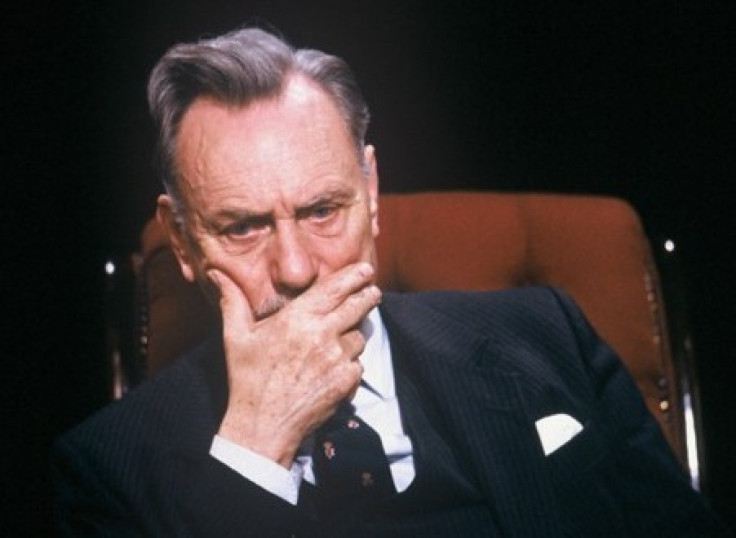London Riots 2011: Has Enoch Powell?s Nightmare Vision Come True?

If only Enoch Powell had lived to see this.
While the current civil disturbances in Britain do not appear to be explicitly about race and immigration, much of the violence has occurred in inner-city neighborhoods populated by the descendants of immigrants from the former British Empire.
Indeed, the three men who died in Birmingham Tuesday were Pakistani Muslims, while many shops that have been attacked and destroyed belonged to immigrants of various hues and nationalities.
Moreover, the scale and magnitude of the riots and looting has likely shocked and depressed even the most optimistic supporters of a peaceful, multicultural society.
Which brings us back to Enoch Powell.
Most Britons under 30 have probably never heard of Powell, or perhaps he was someone their parents and grandparents have mentioned.
But the shadow of Powell, who died in 1998, looms over the burning buildings, gangs of marauding youths and wounded police across the modern British landscape.
John Enoch Powell was a Conservative MP from the Midlands who became famous (or infamous, depending upon one’s point of view) for steadfastly opposing the massive immigration of nonwhite peoples from countries in the far-flung British Empire – particularly the Indian subcontinent and the Caribbean.
In April 1968, as the immigration issue reached the top of Britain’s social and political agenda, Powell delivered an epic speech in a Birmingham hotel in which he warned of the long-term consequences of large-scale immigration.
It is widely referred to as the ”Rivers of Blood” speech and it instantly made Powell a hero to many (and a pariah to others). The speech also destroyed any hopes Powell harbored of ever becoming Prime Minister.
A Classical scholar, Powell used allusions to ancient Roman literature when we warned that the streets of Britain will be awash with blood as a result of racial (and presumably class) conflict.
"As I look ahead, I am filled with foreboding; like the Roman, I seem to see ‘the River Tiber foaming with much blood,'" he gravely stated.
Powell exploited the fears and anxieties of white Englishmen (particularly the working class) over immigration that was imposing wholesale changes upon British society in just one generation – of which Powell commented “there is no parallel in a thousand years of English history.”
In the speech, he quoted an unnamed constituent who allegedly told him: "If I had the money to go, I wouldn't stay in this country… In this country in 15 or 20 years' time the black man will have the whip hand over the white man.”
Powell also warned that by the year 2000, one-tenth of the British population would be nonwhite immigrants and their descendants. He actually underestimated that -- according to statistics, in 2009, about 12 percent of the population was black, Asian or mixed-race.
“Whole areas, towns and parts of towns across England will be occupied by sections of the immigrant and immigrant-descended population,” Powell declared in that long-ago speech.
Once again, he was proven right. There are entire neighborhoods in parts of London, Birmingham and Manchester in which one will not see a white British face. London itself is believed to be about 30 percent nonwhite now.
Powell’s warnings centered on the fact that Britain would lose its cohesive national character because the importation of peoples of vastly different cultures (particularly Indians and Pakistanis) would make them unassimilable – and therefore, contribute to social breakdown and chaos.
But Powell was very wrong in parts of his analysis.
For example, the Indian Hindu and Sikh populations of Britain have (more or less) prospered and have become among the highest-earning and most law-abiding ethnic groups in the country. Despite pervasive racial prejudice and discrimination, their children continue to excel in school and in the professions.
It is true that a great many Pakistani and Bangladeshi Muslims, as well as Afro-Caribbeans, remain trapped in poverty and suffer from poor education and high unemployment, but this is also true of many white English people as well.
Many will say that the current strife has nothing to do with race and everything to do with aimless, lawless kids trying to steal things they have no hope of buying legitimately -- i.e., wanton, anarchic theft and destruction for its own sake.
That may be the case, but these riots are generally occurring in regions of British cities with significant immigrant communities. Are they being specifically targeted? Is the core of the riots the greed of venal youths? Or is it about the still-hostile relations between police and immigrants?
In the ongoing chaos and confusion, that can’t yet be ascertained.
But what’s not ambiguous is that the riots were sparked by the death of a black man named Mark Duggan, who was shot by police in Tottenham, North London.
In a recent column, Toby Young of The Daily Telegraph newspaper wrote: “What’s so depressing about tonight’s outbreak of public disorder is that it indicates that little or no progress has been made when it comes to relations between the police and the local African-Caribbean population, particularly the local youths.”
Still, many of the youths rioting and looting in London and elsewhere appear to be white, some as young as 11. Ironically, these are the very people that Powell wanted to protect, preserve and empower.
Perhaps Powell could have done a better service to his country had he focused squarely on improving the health, education and welfare of the poor in Britain, rather than focus specifically on race. It is indeed the poor and working class who are the most aggrieved group in the country – and who are most likely to loot and riot and express their anger and frustration.
© Copyright IBTimes 2024. All rights reserved.











